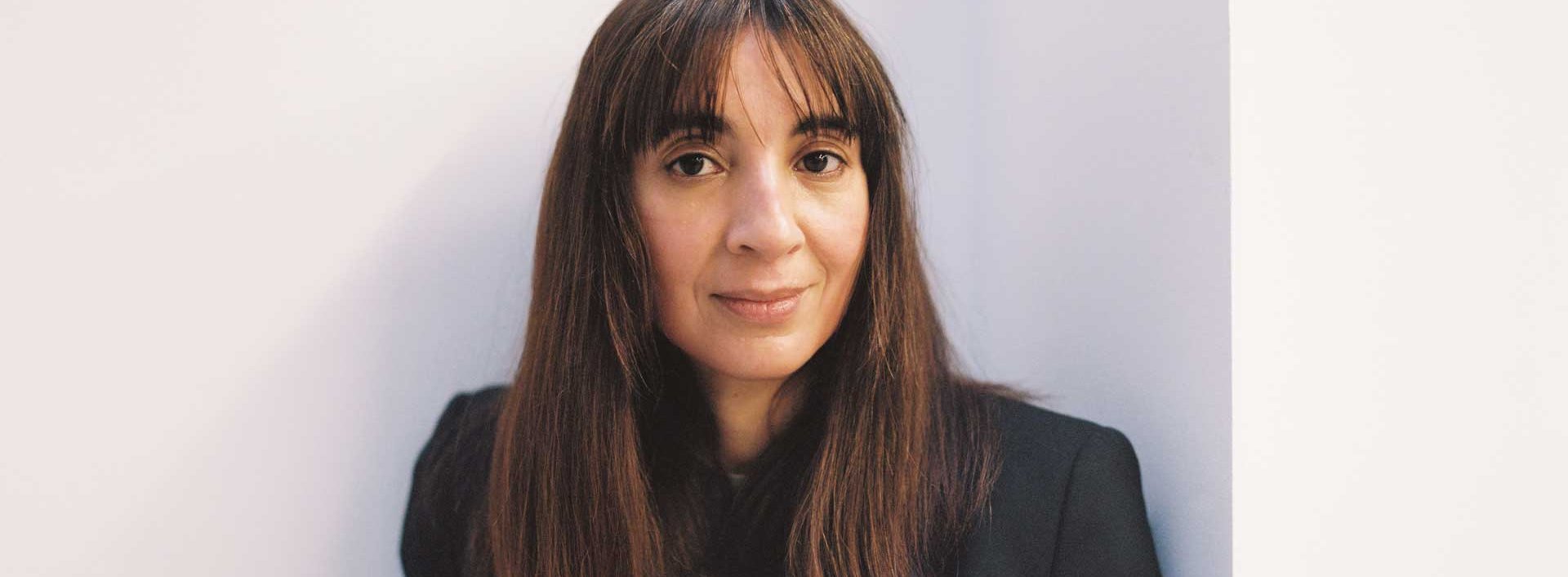
Bouchra Khalili, oral storytelling as a tool of resistance
In 1973, France was faced with an unprecedented situation: Dozens of immigrant workers in France who came from across the Arab world went on hunger strike to demand better conditions and proper documentation, while protesting against the racist violence and even murders that had targeted their communities. Founded a year before, the Mouvement des Travailleurs Arabes (MTA, or the Arab Workers’ Movement) was starting to gain momentum, giving these invisible workers a platform for the first time. To make their voices heard, some of them looked to another medium: the theater. They went on to form the theater troupes Al Assifa and Al Halaka, through which they would stage plays about their daily lives.
This historic period is the subject of recent artworks by Bouchra Khalili. Predominantly known for her video art and photography, the French-Moroccan artist, born in 1975, brought together several actors from these theater groups and invited them to perform fragments of work from archives and plays first performed 50 years ago. Currently on show at LUMA Arles, the films The Circle and The Storytellers (both 2023) tackle the broad themes that have been present in her work for over a decade, from the immigrant experience of being separated from your home country to oral storytelling as a tool of resistance.
Khalili’s work is now enjoying international recognition. The artist is one of the four finalists of this year’s Prix Marcel Duchamp, and will present a new project at the Centre Pompidou this fall.
Why was the fundamental right to mobility turned into a privilege?
Bouchra Khalili
Since she was a teenager in Morocco, Khalili has observed firsthand the mass exodus of Moroccans towards Europe. Seeing this up close made her question their place in society. ‘In the early 1990s, I witnessed the beginnings of perilous crossings of the Mediterranean on makeshift boats. These began with the implementation of the Schengen agreements, which abolished borders for citizens within the EU. The borders consequently closed in on neighbors on the southern shores of the Mediterranean. It was at this point that I began to ask myself a question that continues to haunt me: Why was the fundamental right to mobility turned into a privilege?’
When she was starting out in photography as a teenager, then during her studies in film theory and visual arts at the École nationale supérieure d’arts de Paris Cergy, she began to be interested in two pieces of crucial data: geographical borders and the concept of national identity – arbitrary and authoritarian ways of categorizing people.
In one of her first large-scale projects, The Mapping Journey Project (2008-2011), Khalili lets eight people relate, in turn, their journeys across the Mediterranean, while tracing their route in red marker on a projected map. Shown in staggered rows, the eight films create new visions of a world whose contours are being redefined by migration, all the while illustrating the difficult journeys of millions of people caught between different countries and cultures, whose in-between state compromises their sense of belonging to one nation – just like the artist herself, who is both Moroccan and French and lives between Berlin and Vienna.
‘I’m not a documentary filmmaker, and I don’t produce fiction either,’ she clarified, adding that her videos are ‘hypotheses in film shaped into collective fantasies.’ They stand out for their hybrid formats, combining historical documents with fiction, words spoken both by the people concerned and reinterpreted by performers, as well as showing first encounters between people from different backgrounds, opening up new ideas to be explored.
I’m not a documentary filmmaker, and I don’t produce fiction either.
Bouchra Khalili
That’s how we come to understand Khalili’s thinking: Someone’s story is never guaranteed to be an unequivocal truth that will become the official narrative. The things recounted in her films, taken from conversations sometimes held over the course of several weeks, express so many subjectivities and contribute to the writing of an open and, by definition, plural story. To do this, it is therefore essential that the interviews are done willingly and organically, always leaving room for chance. When she was preparing the film The Tempest Society (2017), where three Athenians discuss the state of their society after the 2016 economic crisis, the artist spent six months in the Greek capital in order to meet people from different social backgrounds and generations. In Paris and Marseille, it was through her thorough knowledge of the MTA that Khalili managed to find five former members of the movement and later film them.
The artist wants to break down barriers between official languages – considered ‘legitimate’ – and more informal languages, in order to create composite, living art, keeping alive the memory of threatened and disappearing traditions.
Bouchra Khalili
A foundational element of any civilization and culture, and key for communities on the move looking to build a life elsewhere, language forms the backbone running through all of Khalili’s work. In 2012, it was at the heart of the first film in her trilogy The Speeches Series (2012-2013), for which she asked five immigrants living in Paris or its suburbs to recite by memory work by Aimé Césaire, Malcolm X, and Édouard Glissant. Rather than reciting the actual text, the different performers were asked to reappropriate it with their own language, saying it in Wolof, Kabyle, or Dari. Khalili is still deeply affected by the halqa, the popular Moroccan tradition of bringing spectators into a public space to watch speeches, theater shows, and other performances, much like the Greek agora. Like the storytellers in these public spaces, oscillating freely between formal Arabic and local dialects, the artist wants to break down barriers between official languages – considered ‘legitimate’ – and more informal languages, in order to create composite, living art, keeping alive the memory of threatened and disappearing traditions.
From the way she presents her films, often as polyptychs, to new friezes and cartographies that she hangs on the wall, whose formerly linear and chronological organization is now replaced by islands of ideas, Khalili’s oeuvre dismantles traditional hierarchies, creating a rhizomatic work that upends the power structures and forms of control that condition the way we look at the world. She also takes this approach with her exhibitions like those at the Jeu de Paume in Paris in 2018 and at MACBA in Barcelona a few months ago, rejecting traditional hanging styles so that her projects synchronize together simultaneously in the space.
‘I try to avoid cacophony to leave room for a choir,’ she said, adept at juxtaposing her first works with more recent films to create unexpected links. Khalili often uses the word ‘constellation,’ describing how different elements can coexist without cancelling, crushing, or subordinating each other according to archaic systems of domination. ‘In a literal sense, constellations are themselves born out of myths and stories,’ she said. ‘Often passed on orally, these stories have always generated knowledge which has been used and transmitted by navigators for centuries.’
I see my works as an invitation to imagine a community that does not proceed by exclusion to define its members, but that goes beyond restrictive conceptions of identity and belonging.
Bouchra Khalili
The image of a constellation guided her again for her project for the Prix Marcel Duchamp, which will be revealed at the beginning of October. Her installation brings together videos, posters, and photographic prints around a never-before-seen film and invites the visitor to move around the different works, which are all connected by themes that are important to her. But Khalili is quick to remind us that her work isn’t a commentary on current affairs, nor an essay on the topics she explores; rather, it seeks to upend our points of view and shake the solid foundations of a society that is still in a pyramid-shaped hierarchy. ‘Although my work has often been defined as being about “migrants”, I see my works as an invitation to imagine a community that does not proceed by exclusion to define its members, but that goes beyond restrictive conceptions of identity and belonging.’ A community capable, like constellations, of leaving a heliocentric world, so that all of its stars can shine as brightly as each other. ◼
Related articles
In the calendar
Bouchra Khalili by Marion Berrin pour Art Basel.
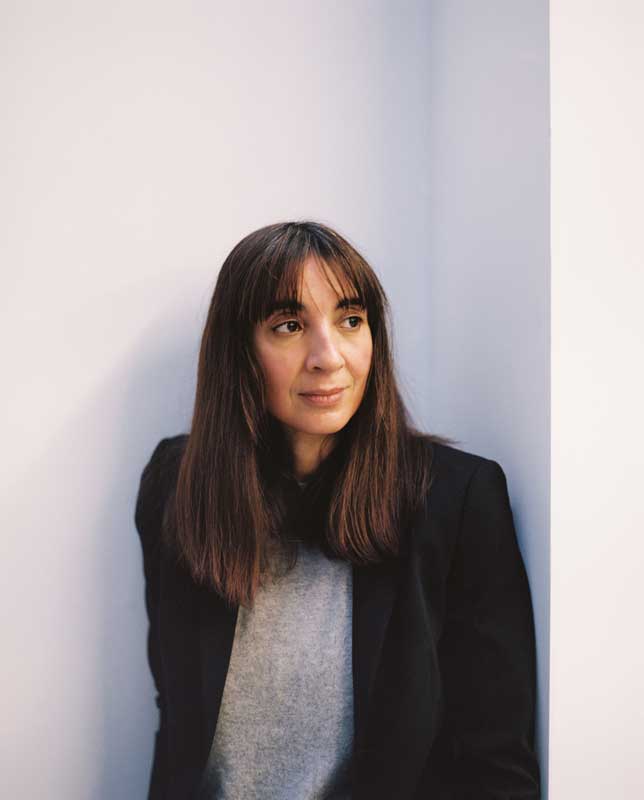
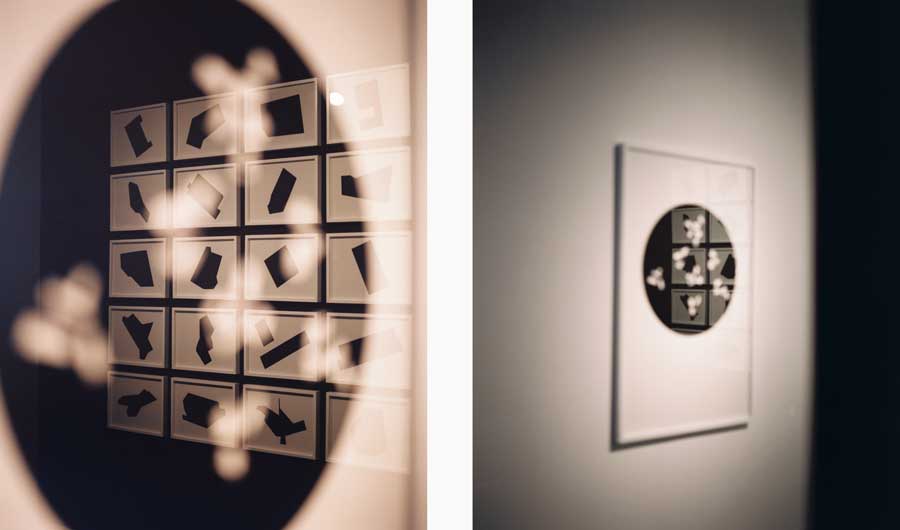
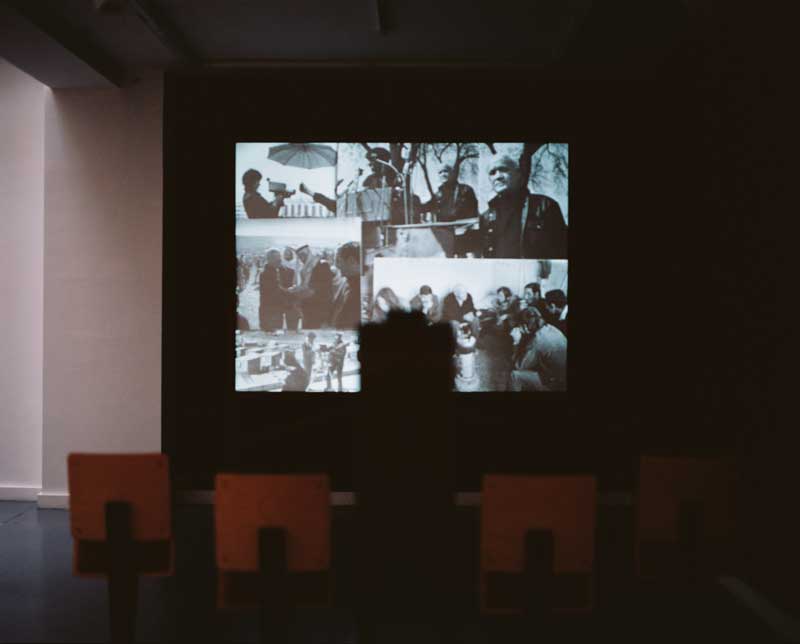
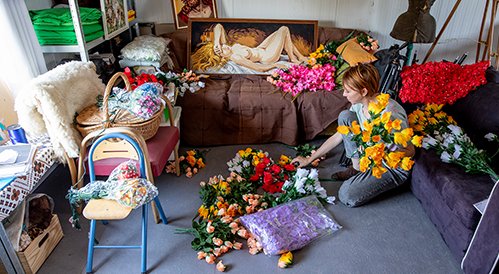
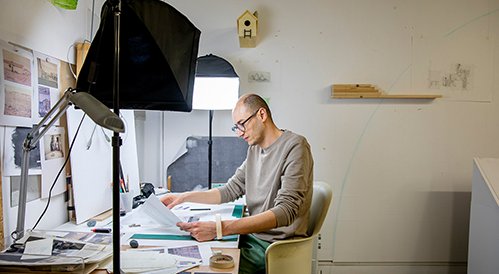
![[Translate to English:] [Translate to English:]](/fileadmin/user_upload/tarik-vignette.jpg)
